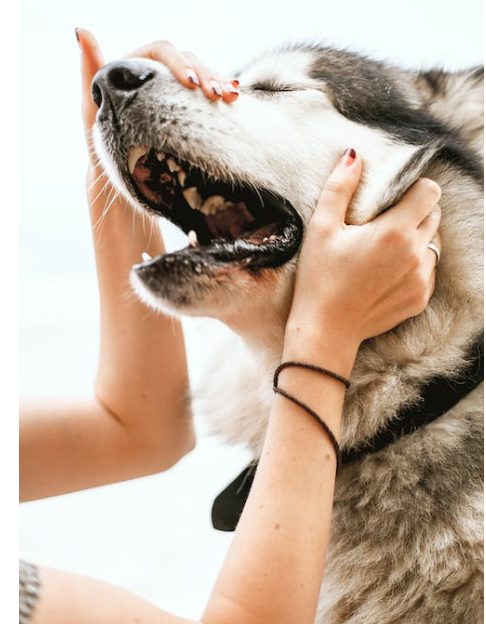
As loving dog owners, it can be concerning to us to see our furry friends showing unwanted behaviors. These behaviors can be related not only to the manners or training progress of our dogs, but also to potential underlying health conditions.
Gagging is a type of behavior, that can make us worry about the health of our paw family member. It can be caused by a variety of reasons, some of which may require medical attention. Therefore, it is important to understand the reasons behind this behavior, so we can take appropriate action to help them feel better.
In this article, we will explore the possible causes for gagging in dogs, how to help your paw friend if they exhibit this behavior, when to seek medical help, and how to prevent your dog from gagging.
What Is Gagging?
Gagging in dogs is a reflexive act of swallowing or coughing that occurs when something is irritating the back of the throat or the trachea. It is a normal response of the body to clear the airway from any obstructions that may be there. The sound that accompanies “gagging”, makes a dog look like they are about to vomit while coughing. It is important to note, that gagging is different from coughing and vomiting.
What Dogs Are Prone to Gagging?
Gagging is more common in older canines, due to the larger amount of mucus they produce. If your paw friend is elderly, and they occasionally gag, probably there is nothing to worry about. However, if this behavior is reoccurring, then you should seek veterinary help.
Possible Reasons for Gagging
Foreign object in the throat
Dogs are curious by nature and enjoy investigating their surroundings, which sometimes can lead to potentially dangerous situations. If a foreign object gets stuck in the dog’s throat, or gastrointestinal tract, serious health problems can occur. Also, dog toys with small detachable parts or old toys whose parts are already loose, can be easily ingested. Therefore, you should be careful when you are buying your canine toys. Opt for high quality toys, that are safe to use and can last long.
Please, be extremely careful if you decide to remove a stuck object from your dog’s throat yourself. If you are not cautious enough, you can put it even deeper in your canine’s throat or accidentally get bitten by your paw friend.
If you are uncertain how to remove the object, please consult a veterinarian and do not take any risks.
Kennel Cough and Other Respiratory Issues
Kennel cough is a highly contagious respiratory infection that is commonly seen in dogs that spend time in areas with a high concentration of dogs, such as dog parks, shelters, daycare centers and boarding facilities. Having a dry cough and gagging, are usually among the accompanying symptoms of this condition. Further symptoms you should look for are decreased appetite, lack of energy, difficulty breathing and fatigue.
Allergies
If your dog is allergic to pollen, mold, dust, certain food or other factors in their environment, their throat can become itchy. This, can lead to coughing and gagging. If you are wondering whether your dog is gagging due to allergy, we would recommend that you check them for redness and further symptoms like itching and scratching. We would recommend that you are aware of your paw friend’s surroundings to be able to recognize any changes in it.
Consultation with a veterinarian is always recommended, so they can test your dog for allergies and prescribe treatment if needed. Changes in their diet could also be advisable.
Gastrointestinal Issues
If your paw friend is dealing with gastrointestinal issues, they are likely to vomit and have diarrhea. Loss of appetite, dehydration and gagging can also be accompanying symptoms. If the issue is more severe, make sure to contact a veterinarian as quickly as possible and keep your dog hydrated in the meantime.
Stress, Anxiety & Fear
If your dog is overly stimulated by a negative trigger in their environment, they may start gagging. Separation anxiety, phobias (like phobias of certain sounds), and stress can be provoked by abrupt changes in their surroundings like moving or passing of a family member, changing the living location, welcoming a new pet or baby. Extreme fear of loud sounds such as fireworks or thunderstorms can also be a cause for this behavior.
Heart Problems
Fluid can leak out of the capillaries and get to the lungs, causing difficulty breathing. Gagging, coughing, fatigue, difficulty exercising are among the obvious symptoms of a heart problem.
Trachea Collapse
A collapsed trachea, also known as tracheal collapse, occurs when the walls of the trachea, which is the tube that carries air from the nose and mouth to the lungs, become weak and lose its shape. This can cause the trachea to flatten and narrow, making it difficult for air to pass through.
The exact cause of tracheal collapse is not always clear, but it is most commonly seen in small dog breeds such as the Chihuahua, the Pomeranian, and the Yorkshire Terrier. Factors that may contribute to tracheal collapse include:
Genetic predisposition, Obesity, Chronic respiratory infections and allergies.
Please keep in mind that pulling too hard on a leash or collar can also put pressure on the trachea and contribute to this issue.
Drinking Too Quickly
If your paw friend is overly energetic, they are likely to also need to drink a lot of water to stay hydrated. Drinking too quickly though, is unhealthy and can cause your doggie to gag. It is not a serious issue though, as it usually lasts no longer than a few minutes. However, if your paw friend exhibits this behavior regularly, then you may need to supervise their water intake. For instance, you can give them water in several doses.
Excitement
Just like negative emotions, positive ones can lead to physical appearance in dogs! Over excitement can cause your paw friend to gag. Usually, getting overly excited is common in young dogs, who are still learning to control their impulses. Based on the breed and the individual temperament and personality, some dogs can be more sensitive and emotional than others. If this is the case, then you may need to exercise your canine more intensively and also stimulate them mentally. Basic obedience training and desensitization are also recommended in this case. If you are not familiar with the term “desensitization” in the context of dog training, you may be interested in what it means! This term describes the process of exposing the dog to the stimuli step by step, by starting at a really low level, so that no reaction occurs. The intensity of the triggers should be increased gradually. Desensitization is usually paired with counter-conditioning, which implies changing the dog’s attitude toward the stimuli. This change in their attitude is achieved by associating the triggers with food or another positive reinforcement tool.
When to Seek Medical Assistance?
If your dog is excessively gagging and this behavior continues several minutes, then it is very likely that a foreign object has lodged in their throat. As mentioned above, seek veterinary help, if you are not sure that you can handle the situation yourself.
If there is not a foreign object stuck in your dog’s throat, but the behavior persists more than a day, it is better to seek medical help! Your veterinarian will assess the issue, eventually run tests to exclude allergies or underlying health conditions and prescribe proper treatment.
Take the dog’s overall behavior into account. You should try to identify further symptoms, indicating the presence of a medical issue, such as low energy, lethargy, pale gums, loss of appetite, diarrhea, vomiting, etc. If these symptoms are present, your dog is likely to fight a viral or bacterial infection or even more serious condition.
Tips on How to Prevent Your Dog from Gagging
While some causes of gagging in dogs may be out of your control, there are still some steps you can take to help prevent this behavior from occurring.
Keep small objects out of your dog’s reach. Dogs are curious and may be tempted to swallow small objects that can cause gagging or choking. Supervising your paw friend during playtime can be helpful!
Avoid feeding your dog bones, especially cooked ones, as they are fragile, and some small parts can stick in their throat. Dental sticks can be a good alternative.
If your dog has allergies that cause gagging, identify and remove the allergen from their environment. This may include changing their diet, using air purifiers, or avoiding certain areas during peak pollen seasons.
Keep your dog's vaccinations up-to-date. Some causes of gagging in dogs, such as kennel cough, can be prevented by vaccinations. Make sure that you do not miss the regular veterinarian checkups to ensure that your paw family member is healthy.















